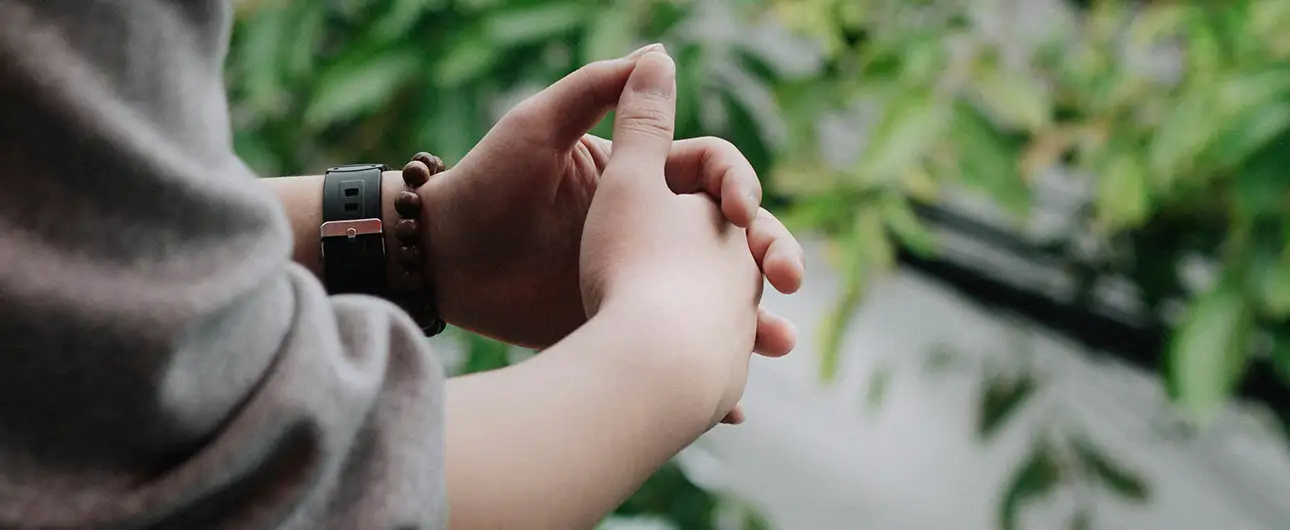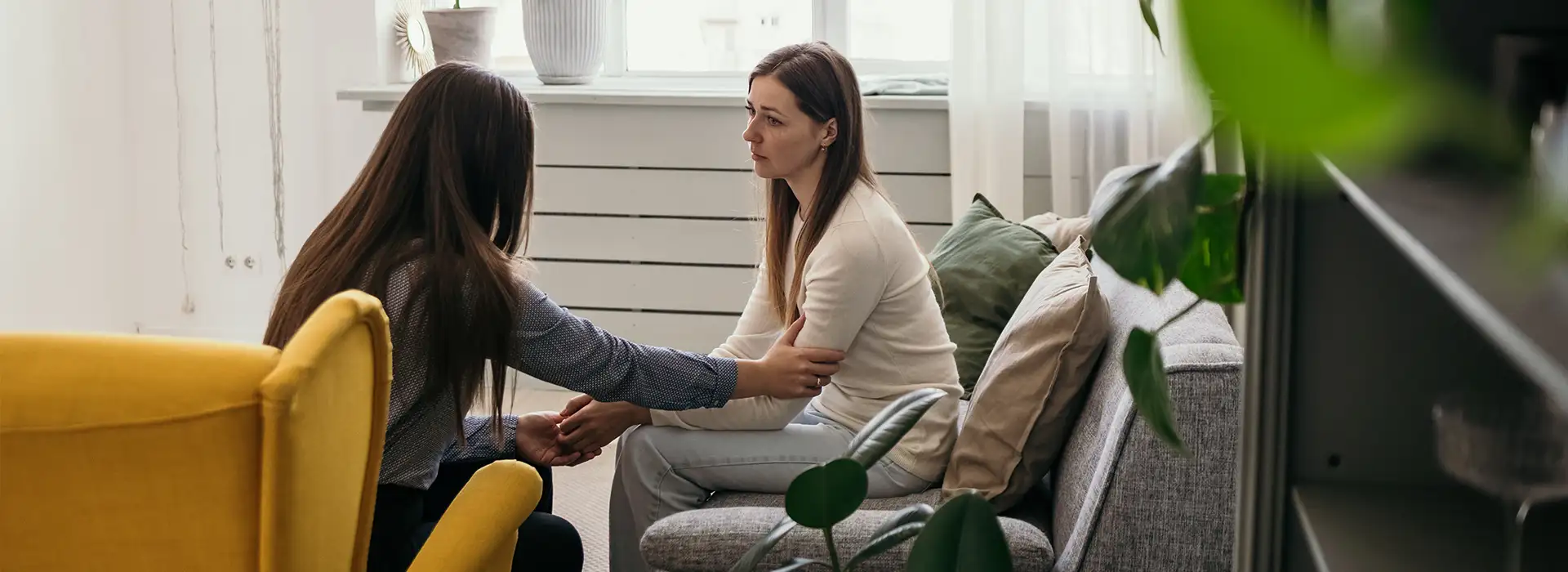Holistic therapy for anxiety takes a comprehensive approach that supports emotional well-being by treating the mind, body, and lifestyle as interconnected parts of health.
It’s a supportive option for those seeking natural remedies and integrative ways to manage anxiety beyond conventional treatment.
Understanding Anxiety Disorders
Anxiety disorders involve persistent feelings of anxiety, worry, fear, or unease that interfere with daily activities. They can affect your thoughts, body, and overall functioning.
Signs and Symptoms of Anxiety
You may notice both physical and emotional signs when experiencing anxiety. These often include muscle tension, restlessness, fatigue, rapid heartbeat, and digestive issues. Psychologically, anxiety symptoms can lead to excessive worry, difficulty concentrating, irritability, and sleep disturbances.
These symptoms can vary in intensity and may come and go depending on your environment or current stressors. Recognising these early signs allows you to better understand what’s happening in your body and begin seeking appropriate anxiety treatment.
Causes and Risk Factors
Anxiety may develop from a combination of genetics, brain chemistry, personality traits, and life experiences. Stressful events such as trauma, illness, or ongoing work or relationship stress can also increase your risk.
A family history of generalised anxiety disorder or other mental health conditions may play a role, along with substance use or medical conditions that affect brain function. Understanding these risk factors helps you see how anxiety may emerge and why it affects each person differently.

What is Holistic Therapy?
Holistic therapy is an alternative treatment that considers your mental, physical, and emotional health as interconnected parts of your well-being. It supports healing through natural remedies and supportive methods.
Mind-Body Connection
In holistic therapy, your physical health and emotional state are seen as closely associated. Chronic tension, digestive issues, or fatigue can reflect emotional stress and anxiety stored in your body.
Techniques such as breathwork, yoga, and mindful movement help release this tension and support nervous system regulation. By paying attention to these connections, you gain a clearer understanding of how emotional experiences can shape physical sensations and relieve anxiety.
Balance and Emotional Regulation
Holistic therapy encourages emotional regulation by teaching you to notice and respond to your internal cues without judgement. Practices like meditation, grounding techniques, and expressive therapies help manage overwhelming emotions and reduce stress.
These methods support your ability to stay present and respond calmly during stressful moments, which can reduce the intensity of anxiety symptoms.
Self-Awareness and Connection
Developing self-awareness is central to holistic therapy. You learn to observe your thoughts, behaviours, and emotional triggers with clarity. This process helps you understand how certain habits or patterns may be reinforcing your feelings of anxiety.
As your self-awareness improves, you may also begin to reconnect with your values, relationships, and sense of meaning, which can all contribute to better mental health and emotional well-being.
Effective Holistic Therapy for Anxiety
Holistic therapy offers natural techniques that support your emotional health by gently calming your nervous system and promoting healthier patterns in your daily life.
Mindfulness Practices and Meditation
Mindfulness encourages you to observe your thoughts and sensations without reacting to them. Regular meditation helps reduce racing thoughts and brings attention to the present moment. These practices can interrupt anxious thinking patterns and help you relieve anxiety.
Yoga and Movement Therapies
Yoga and other movement-based therapies combine physical postures with breathing and intentional awareness. These methods release built-up physical tension while supporting emotional release.
Gentle movement can regulate your heart rate, ease muscle stiffness, and promote a sense of grounding. Practising regularly may reduce the intensity of anxiety symptoms and support a calmer internal rhythm, offering a natural form of anxiety treatment.
Deep Breathing Exercises
Focused breathing techniques help calm your body’s stress response. Slow, rhythmic breathing lowers your heart rate and sends signals of safety to your brain. These exercises are simple to learn and can be used during moments of stress and anxiety to reduce symptoms such as dizziness or rapid breathing.
Herbal Remedies
Certain herbs have been traditionally used to reduce anxiety symptoms. Options like chamomile, lavender, and ashwagandha are known for their calming properties.
These natural remedies may support relaxation when used under professional guidance. It’s important to consult a healthcare provider before using herbs, especially if you are taking medication or have underlying conditions.
Balanced Diet and Supplements
Nutrition plays a significant role in your mental health. Diets rich in whole foods, healthy fats, and essential vitamins support brain function and mood regulation.
In some cases, supplements like magnesium, omega-3 fatty acids, or B vitamins may be recommended. Supporting your body nutritionally can help stabilise energy levels, reduce the physical impact of feelings of anxiety, and become part of your overall treatment plan.
Physical Exercises
Regular physical activity helps regulate stress hormones and improves mood through the release of endorphins. Activities such as walking, swimming, or cycling can help reduce stress, ease nervous energy, and improve sleep. Exercise also improves circulation and supports nervous system balance, which plays a role in managing chronic anxiety symptoms.

How Holistic Treatment for Anxiety Improves Mental Health
Holistic treatment works by addressing the different factors that contribute to your anxiety, such as physical tension, emotional patterns, thought processes, and daily habits. Combining mind-body practices with lifestyle changes helps reduce the intensity of feelings of anxiety and supports healthier coping responses.
These approaches can help you sleep better, improve your concentration, and strengthen emotional resilience. As you engage in holistic care, you may also notice a greater sense of control over how you respond to anxiety.
Effectiveness of Holistic Treatment in Managing Anxiety
Research shows that holistic methods such as mindfulness, physical movement, and nutritional support can reduce anxiety symptoms when practised consistently. These techniques help regulate the nervous system and support emotional processing without relying solely on medication.
While holistic therapy may not replace clinical treatment for severe anxiety, it often enhances outcomes when combined with other approaches. Many people find that it helps them build lasting habits that support long-term emotional health.
Discover the Natural Way to Reduce Anxiety at The Orchid
At The Orchid, we take time to understand what you’re going through. Our anxiety treatment uses gentle, natural remedies that support both mind and body. Through supportive sessions and simple, grounded practices, we help you make space for change in a way that feels manageable.
You’re welcome to begin whenever you’re ready. We can help you create a holistic treatment plan that’s consistent with your goals.
Frequently Asked Questions
Is the Holistic Approach Better than Anxiety Medication?
The holistic approach is not necessarily better, but it offers a complementary alternative treatment. It supports long-term emotional health through lifestyle and mind-body practices without replacing medical anxiety treatment.
How Does Holistic Treatment Differ from Traditional Therapy?
Holistic treatment addresses your emotional, physical, and lifestyle needs together, while traditional therapy typically focuses on thoughts and behaviours. Both can support mental health when combined.
What are Some Natural Ways to Treat Anxiety Without Medication?
Natural strategies include mindfulness, breathing exercises, movement therapy, herbal support, and nutrition. These practices reduce feelings of anxiety and promote nervous system balance.
Can a Holistic Approach Be Combined With Other Addiction Interventions?
Yes, holistic care can complement addiction treatment by helping individuals manage stress, improve self-regulation, and support long-term mental health during recovery.
What Lifestyle Changes are Recommended to Manage Anxiety?
Helpful changes include regular physical activity, quality sleep, nutritious food, reduced screen time, and consistent stress-relief practices that help reduce stress.
How Does Holistic Therapy Help in Managing Chronic Anxiety?
Holistic therapy reduces chronic anxiety by calming the body, supporting emotional awareness, and integrating self-care strategies into your treatment plan.






